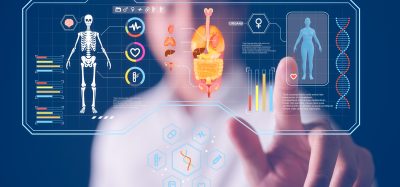SOPHiA AI unlocks power of exome sequencing for clinical diagnostics
Posted: 1 June 2017 | Niamh Marriott (Drug Target Review) | No comments yet
SOPHiA AI demystifies the secrets of the exome, home to 85% of disease-causing genetic variants. Clinicians can now get highly accurate results to diagnose patients for rare hereditary disorders.


Sophia Genetics, global leader in Data-Driven Medicine, announced the release of its Whole Exome Solution (WES) and Clinical Exome Solution (CES).
Accessible through Sophia DDM, the company’s analytical platform for clinical diagnostic, these solutions are powered by new knowledge-driven DNA sample preparation kits, which allow clinicians to fully leverage the power of SOPHiA Artificial Intelligence (AI) to get access to broader, deeper and more meaningful clinical insights.
Exome analysis
Today, only 25% of rare diseases are accurately diagnosed. With SOPHiA’s applications for exome analysis, this is set to change. The exome is the protein-coding region of the human genome, which represents just 1% of the genome but contains approximately 85% of known disease-causing genetic variants.
Reduce preclinical failures with smarter off-target profiling
24 September 2025 | 15:00PM BST | FREE Webinar
Join this webinar to hear from Dr Emilie Desfosses as she shares insights into how in vitro and in silico methods can support more informed, human-relevant safety decisions -especially as ethical and regulatory changes continue to reshape preclinical research.
What you’ll learn:
- Approaches for prioritizing follow-up studies and refining risk mitigation strategies
- How to interpret hit profiles from binding and functional assays
- Strategies for identifying organ systems at risk based on target activity modulation
- How to use visualization tools to assess safety margins and compare compound profiles
Register Now – It’s Free!
SOPHiA takes exome sequencing to new heights, allowing for unmatched analytical performances to detect and annotate disease-related genetic variants over all protein-coding regions of the human genome.
Exome sequencing generates large amounts of sequenced data. The problem is that reporting variants depends on the algorithms used to sift through this data, leading to a substantial discordance in variants description between the different annotation tools and their descriptions in functional and clinical databases.
Consequently, clinicians can confound variant matching which is a critical step in variant classification. SOPHiA now overcomes variant annotation tools’ limitations by annotating variants in a way that helps clinicians better interpret genomic data and achieve more accurate and precise clinical care. Based on pattern-recognition technologies, SOPHiA features a database search engine that guarantees the identification and retrieval of the matching variants regardless of their representations, such as Indels (insertion or the deletion of bases in the DNA) aligned differently, or complex variants.
Variants interpretation
Variants interpretation is one of the most complex challenges in exome sequencing. But this is also an area where AI can deliver superior insights. SOPHiA processes raw genomic data to detect, annotate, and pre-classify variants to facilitate and accelerate clinician’s decisions. Through SOPHiA, knowledge silos are broken in a collective effort to democratise diagnosis of rare genetic disorders.
Being already used by over 830 experts (i.e. biologists, pathologists, and geneticists) across 285 hospitals, SOPHiA’s unique approach to knowledge sharing makes the experience of an expert in one hospital scalable for the diagnosis of patients in other hospitals. In fact, the more variant interpretations are performed, the more SOPHiA is trained, and the better genetic variants are pre-classified according to the disease types. With the steady increase of both clinically relevant genes and genetic variants to consider in diagnostic, this technology is a now must to help ensure all patients are being diagnosed at the same level, no matter their location.
Saving time and resources
Dr Reinhard Hiller from the Centre for Proteomic and Genomic Research Artisan Biomed Laboratory based in Cape Town, South Africa, explained how WES helps save precious time and resources, “Sophia Genetics’ Whole Exome Solution (WES) serves as an excellent benchmark for our laboratory as it detects and validates a more comprehensive variant list. Sophia DDM analytical platform is user-friendly and easy to navigate, making it possible for a user to be hands-on from benchtop to variant calling”.
In less than three years, SOPHiA has made genomics for routine clinical diagnostic a reality in over 285 hospitals from 50 countries across the globe.
Using AI and leveraging knowledge-sharing to create a collective intelligence, Sophia Genetics continues its mission to democratise Data-Driven Medicine. With faster, more affordable, and more accurate results, the AI-powered exome solutions by Sophia Genetics represent the next frontier in Data-Driven Medicine, and the most efficient diagnostics tool for clinicians faced with unclear phenotypic data.
Related topics
Analysis, Artificial Intelligence, Informatics, Internet of Medical Things, Sequencing
Related organisations
Sophia Genetics
Related people
Dr Reinhard Hiller








